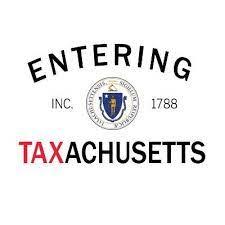
Massachusetts Delivers Some Welcome Estate Tax Relief
Taxachusetts just got (a little bit) more tax-friendly
By John H. Robinson, Financial Planner (October 15,2023)
While Financial Planning Hawaii clients are scattered across the U.S., in terms of geographic distribution, Massachusetts holds the highest concentration, after Hawaii, of course. With respect to tax policy, Neither Hawaii nor Massachusetts is known for being particularly tax-friendly. In fact, Massachusetts has earned it the longstanding nickname “Taxachusetts.” The Bay State's estate tax structure and enforcement policy have historically been consistent with this unflattering moniker.
Across the U.S. there are just 12 states that levy an estate tax. (Five states levy a separate inheritance tax.) Massachusetts's top marginal estate rate of 16% is tied for second highest after Hawaii and Oregon. However, it is widely regarded as one of the most onerous because of its low $1 million per person estate tax exemption. Worse still, $1 million exemption disappeared for estates with values even a penny over $1 million (i.e., the estate tax was assessed on 100% of the estate value).
Additionally, out-of-state decedents who owned property in Massachusetts found that the marginal estate tax levied on their MA property was based on the total value of the decedent’s estate including all out-of-state assets. Conversely, out-of-state property owned by MA residents was also included in their estate tax calculation. To ensure estate tax collection, the Massachusetts Tax Collector places 10-year liens on all of a decedent's property within the state usually within just a few weeks of death. These liens prevent the sale of the property for distribution to heirs or co-owners.
Massachusetts Estate Tax Reforms
Christmas came early for MA taxpayers who might benefit from estate tax reform. On October 4, 2023, Massachusetts Governor Martha Healy signed into law a $1 billion tax reform measure that included four significant provisions that collectively make the state estate tax modestly less draconian. Specifically, the new law doubles the exemption from $1 million per person to $2 million and eliminates the cliff effect that previously made the taxable estate retroactive to $0 for all estates above the exemption amount. The Act also eliminates the inclusion of out-of-state assets in determining the Massachusetts estate tax bill. The law was also made retroactive to January 1, 2023.
READ: Massachusetts Doubles EState Tax Threshold as Part of $1 Billion Tax Reform Act
NOT a Tax Haven
Massachusetts's recent tax reform bill made headlines and was surely welcome news to many taxpayers. However, the estate tax reforms do little to change its reputation as a high-tax state. In fact, the reforms probably will not even change Massachusetts’s ranking among the worst states in which to die. Even in the wake of these reforms, the $2,000,000 exemption is still one of the lowest among the 50 states and is not indexed for inflation over time. Additionally, unlike the federal estate tax, Massachusetts’ estate tax exemption is not automatically portable between spouses and, as such, will still require the use of bypass trusts to preserve each spouse’s $2 million exemption.
Separately, Massachusetts implemented a unique and decidedly unfriendly 3% wealth tax on high wage earners. Fresh off her signing the tax reform bill into law, Governor Healy proposed a new law that would allow municipalities in the commonwealth to levy a tax of .4%-2% on the proceeds of home sales above $1 million with the proceeds going into a special state administered affordable housing fund. The state already has its own .46% transfer tax on the entire sale value. Massachusetts also sports the nation's seventh-highest top marginal income tax rate at 9%.
These statistics thoroughly bolster the state's "Taxachusetts" rep and likely contribute to the exodus of 110,000 residents in 2022 from the state. This was the highest level of resident emigration in 30 years. The top two destinations were New Hampshire and Florida, both of which have no state income tax or estate tax.
Related Reading:
The Estate Taxes Catching Americans by Surprise (Wall Street Journal)
The Return of Taxachusetts (Wall Street Journal)
Massachusetts losing residents to other states, Census Data Shows. (Salem News)
John H. Robinson is the owner/founder of Financial Planning Hawaii and Fee-Only Planning Hawaii. He is also a co-founder of fintech software-maker Nest Egg Guru.

